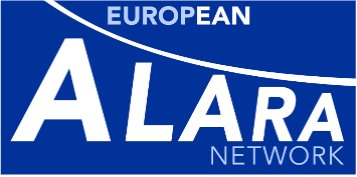Newsletters
What is it for ?
The EAN produces a regular ALARA Newsletter, widely distributed (especially in Europe), to provide a link between all those concerned with ALARA, mainly the health physicists, but also the managers, the radiation protection organisations, the research bodies, the regulatory bodies, the trade union representatives and the medical doctors. This Newsletter intends to reflect some major aspects of the ALARA life in Europe: evolution of regulations and judicial precedents, results of research, description of existing databases, analyses of dosimetric data, authorities and utilities ALARA programmes, available ALARA tools, need for ALARA improvements, lessons learnt from incidents, and recommendations to EC coming from the panel sessions of the EAN Workshops. Each issue includes one or two feature articles, as well as experts' viewpoints and ALARA information.
The content of the Newsletter has mainly been provided by EAN Members. However, the EAN Newsletter Editorial Board has decided to also encourage recipients of the Newsletter to submit article for inclusion in future issues. Submitted articles should aim to fit the current ediotorial line and will be selected on that basis.
- Proposal should be written in English language and send electronically to This email address is being protected from spambots. You need JavaScript enabled to view it.
You are free to translate the Newsletter: As in many countries the English language is not understood by some of the potential addresses of the Newsletter, it has been suggested it should be translated into other languages (Flemish, Spanish, French...). The Network is not able to do this centrally but, as the objective of the Newsletter is to facilitate as wide as possible dissemination of the ALARA culture, every participating organisation may translate the Newsletter and publish it as a 'common' publication with the European ALARA Network. Moreover any journal can translate one or more articles in its own publication using its national language, providing the original article in the Newsletter and authors are referenced.
Authors are solely responsible for their publication in this Newsletter. It does not represent the opinion of the community. The community and the Editorial Board are not responsible for any use that might be made of the data appearing therein.
- To subscribe to the Newsletter, please send your request to This email address is being protected from spambots. You need JavaScript enabled to view it.
Download the 31st issue in pdf format pdf ALARA Newsletter 31
Contents
- Developing a national radon control strategy for Ireland - David Fenton
- The IAEA/ILO International Action Plan on Occupational Exposure - Christian Lefaure, Jizeng Ma, Shengli Niu
- Development and dissemination of ALARA culture - Sotirios Economides, Franck Hardeman, Fernand Vermeersch, Cristina Nuccetelli, Serena Risica, Caroline Schieber, Annemarie Schmitt-Hannig
